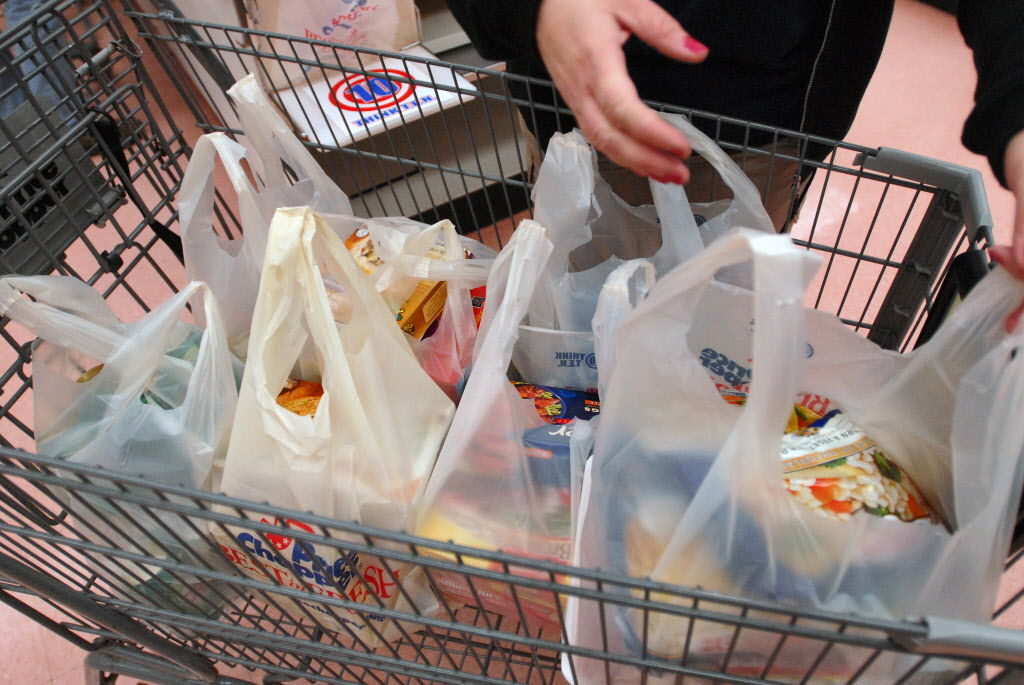Views: 0
A Holiday Gift to the Environment
By Dan Murphy
Mayor Mike Spano’s announcement last week that he will introduce legislation to the City Council calling for a 5-cent fee on all plastic and paper shopping bags provided by retailers in Yonkers puts the city at the forefront of all the “big five cities” in New York in pollution control and environmental activism.
In what can be called a holiday gift to the environment, Spano and the Yonkers Green City Advisory Committee announced the new proposed legislation, called the Environmental Protection and Pollution Prevention Act, which would require retail stores to charge a 5-cent fee on all single-use carry-out plastic and paper bags. If passed, Yonkers would be the first big city in New York State to authorize any restriction or ban of plastic or paper single-use bags.
“This proposed legislation is an opportunity to enact real, yet simple change to how we think about single-use bags,” said Spano. “In Yonkers, we need to do our part in being stewards of the environment and reduce the negative environmental impacts resulting from the manufacture and disposal of single-use plastic and paper bags. These bags are polluting the air in their production, litter our streets and continue to have devastating effects on wildlife and our waterways.”
Retail stores in Yonkers would charge 5 cents per plastic or paper carry-out bags provided to customers, with the fees being retained by the local store. The legislation applies to any establishment engaged in the retail sale of personal, consumer or household items, but does not apply to any food service establishment located outside of a grocery store, food mart or convenience store.
In a recent Plastic Bag Task Force report, bag fees put in place internationally resulted in a reduction in single-use plastic bags by 50 to 90 percent.
“This is a glorious moment for Yonkers,” said Terry Joshi, vice chairman of the Yonkers Green City Advisory Committee. “The Yonkers Green City Advisory Committee has been focused for years on the stranglehold that plastic bags have on the global environment, which contributes to danger to wildlife and damages our infrastructure systems. Yonkers will join dozens of other American cities, and countries around the world, in working to reduce this unnecessary scourge. YGCAC looks forward to helping with an education campaign to help Yonkers residents understand and comply with these new regulations.”
According to the U.S. Environmental Protection Agency, between 500 billion and 1 trillion plastic bags are consumed worldwide each year. Less than 1 percent of plastic bags are recycled in the United States and they are not acceptable with commingled recyclables at the Westchester County Material Recovery Facility. More than $31,000 a year of Yonkers taxpayers’ dollars pay to clean up plastic from the city’s streets and sewers.
“Single-use plastic and paper products continue to pose a significant hazard to our environment and health locally and globally, while costing billions of dollars in clean-up,” said Jason Baker, Yonkers sustainability director. “This initiative utilizes a model that has proven effective in encouraging consumers to take simple, yet meaningful action to reduce waste, prevent litter and protect our planet.
Spano added: “On average, these bags are used for just 12 minutes, yet the impacts on our environment last for generations. Let’s rid these bags from our roadways, streams and parks and continue to make Yonkers a greener, cleaner place to live.”
Spano encourages customers to bring their own recyclable bag to stores instead of using the single-use bags provided by the store. Residents are able to receive free reusable bags at Yonkers City Hall at the Mayor’s Office of Constituent Services from 9 a.m. to 4:30 p.m. Monday through Friday.
Most plastic bags do not biodegrade and over time the bags break down into smaller, more toxic petro-polymers, which eventually contaminate soils and waterways and can have devastating effects on wildlife, such as birds becoming entangled in the bags and sea life ingesting plastic, which they mistake for food. Additionally, Americans consume more than 10 billion paper bags each year and 14 million trees are cut down yearly for the manufacturing of paper. The paper manufacturing requires large amounts of water, energy and chemicals and can emit toxic and hazardous chemicals into the air and water.
One environmental debate in Westchester, and across the country, is whether to ban plastic bag use or to impose a fee. Other Westchester communities have enacted plastic bag bans, including Hastings, Larchmont and Rye. The Town of North Castle has a plastic bag ban and requires a 10-cent charge for paper bags.
Joshi said: “I personally advocate for a ban but it is usually fought bitterly by the supermarket industry and they are agreeable to a fee. So, this is a good first step. But the United States is way behind countries in Europe, who have banned plastic outright. No plastic bag, straws and they are heading to ban plastic cutlery. When you compare plastic vs. paper, both are bad for the environment, but paper is biodegradable, while plastic stays around for eons. To get rid of plastic is the first step.”
The legislation will now proceed through the City Council, with public hearings and a public debate in the new year before any bag fee is enacted.

